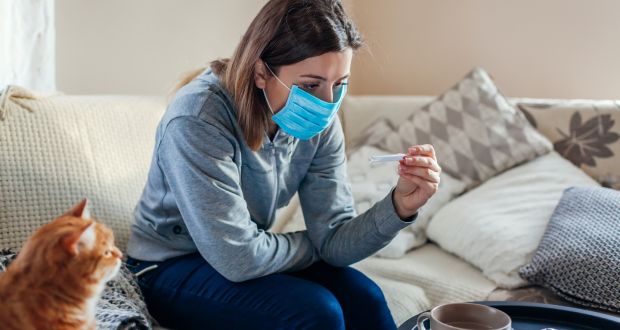The stress of being treated at a hospital can make you even sicker, not just physically but mentally and emotionally as well. Home health care allows a patient to receive treatment, support, and assistance at the safety, peace, and comfort of their home. Especially when a patient has minor symptoms or issues, this saves from the other infections possible at the hospital. Especially amid the pandemic of covid 19 where even going out can be harmful as you can get infected. Telemedicine has been adopted by many states, hospitals, e-pharmacies, online healthcare platforms, and organizations as part of their employee wellness programs.
With the rise in COVID cases, the government of India recently declared that patients who are asymptomatic or slightly symptomatic do not need to be admitted to a hospital and can instead be isolated and treated at home under a doctor’s guidance. The Department of Health and Family Welfare released recommendations on home isolation on July 4th 2020. These recommendations define the eligible patient groups and the procedures for their isolation, treatment, and release. However, the covid home isolation service has few limitations for patient safety. Persons who have tested positive for COVID 19 can be placed in “home isolation” if they meet the following criteria:
- Just asymptomatic or mildly symptomatic patients would be permitted to be home isolated in an individual room at home.
- They must be aware of the guidelines to follow the home isolation technique.
- A health team from the district health authority, the Municipal Palika/municipal health authority, or an authorized private institution/agency will visit or provide consultation virtually to determine the house’s suitability for home isolation and triage the individual.
- For the entire time of home isolation, a dedicated telemonitoring connection is created for regular follow-up of the individual.
- Every day, the individual must monitor and report their health status to their physician/health authority.
- During home isolation, the individual must have a pulse oximeter, a digital thermometer, and personal protective equipment (facemasks, gloves) for real-time monitoring of health.
The person will be released from home isolation according to the state’s COVID-19 discharge policy (mentioned later in this article). Family members, neighbors, the prescribing specialist, and the municipal health authority are informed about the home isolation.
Eligibility Matters for Home isolation – After getting tested positive for covid-19, individuals shall home isolate themselves at their home, and online doctor consultation for covid positive can be avail through Credihealth. But before that, also discuss any comorbidities, if any, so that the doctor can consult accordingly. The prescribing medical officer/physician or doctor will classify the individual as asymptomatic/mild.
- The person should have the necessary facilities at home for self-isolation as well as quarantining family members.
- A caregiver should be available 24 hours a day, seven days a week, for the period of home isolation. A routine contact connection between the caregiver and the hospital is needed.
- Fever of 38 degrees Celsius considered in minor symptoms (100.4 degrees Fahrenheit)
- The oxygen saturation level should be greater than 95%.
- Age must be under 60 years old.
- If the patient has either of the following comorbidities: asthma, diabetes, obesity, or thyroid disorder, they should be well-managed with adequate health supervision, as determined by the medical officer/physician.
- No comorbid illnesses, such as kidney failure requiring dialysis, heart disease, stroke, tuberculosis, cancer, or HIV, are permitted. Should not be immune-compromised, taking hormones or immunosuppressants, and so forth.
- The individual must sign a self-isolation undertaking (Annexure-1) and adhere to the home isolation guidelines.
- The individual must agree to keep track of their health (Annexure-2) and report their health status to their physician and the District Surveillance Officer (DSO) daily for surveillance teams to check upon.
- Home isolation is not permitted for pregnant women who are four weeks away from their due date.
Avoiding Home isolation and get medical help: If the following symptoms and signs appear, the individual should get medical help right away. These medical conditions may require –
- Breathing difficulties
- Using a fingertip pulse oximeter to check oxygen saturation.
- For more than 24 hours, a consistent fever of >38° C (100.4° F) is present.
- Chest pain/pressure that does not go anywhere
- Seizures/slurred voice
- Numbness or weakness in arm or face
- Lips/face developing a bluish discoloration
Any other significant symptom that affects a patient’s health too much is that the patient must consult with the doctor and go for proper medical assistance for better outcomes.
Credihealth recommends a Covid homecare package that includes online doctor consultation for covid positive and has proved effective and patient-centric treatment. Various research shows that patients receiving in-home care heal faster and have a lower risk of re-hospitalization than patients seeking treatment in a hospital.
Creidhealth’s telemedicine services also ensure the best online and teleconsultation via various digital platforms where you can ensure health benefits from any corner of India.

